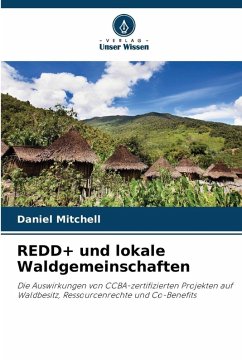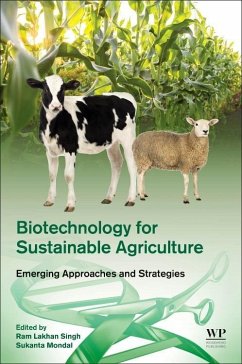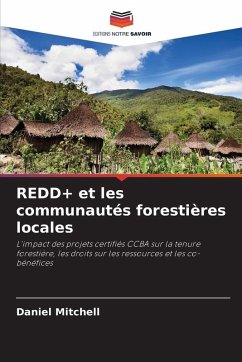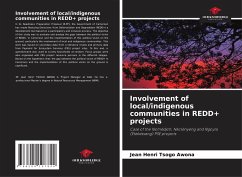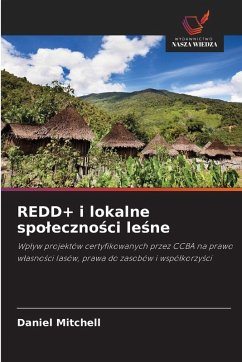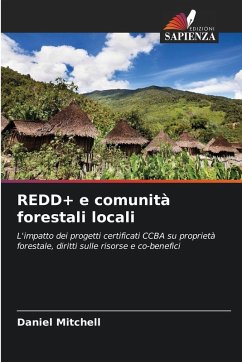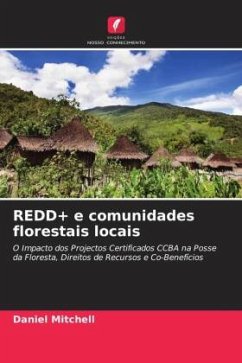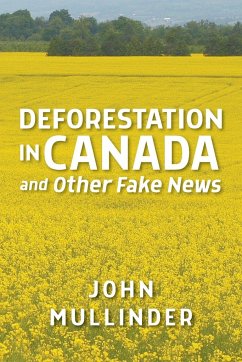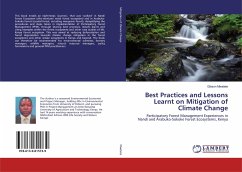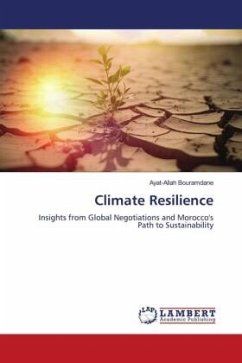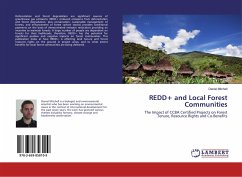
REDD+ and Local Forest Communities
The Impact of CCBA Certified Projects on Forest Tenure, Resource Rights and Co-Benefits
Versandkostenfrei!
Versandfertig in 6-10 Tagen
24,99 €
inkl. MwSt.

PAYBACK Punkte
12 °P sammeln!
Deforestation and forest degradation are significant sources of greenhouse gas emissions. REDD+ (reduced emissions from deforestation and forest degradation, plus conservation, sustainable management of forests, and enhancement of forest carbon stocks) provides conditional payments on the basis of demonstrated emission reductions providing an incentive to maintain forests. A large number of people are dependent on forests for their livelihoods, therefore, REDD+ has the potential for significant positive and negative impacts on forest communities. This publication looks at how REDD+ is affectin...
Deforestation and forest degradation are significant sources of greenhouse gas emissions. REDD+ (reduced emissions from deforestation and forest degradation, plus conservation, sustainable management of forests, and enhancement of forest carbon stocks) provides conditional payments on the basis of demonstrated emission reductions providing an incentive to maintain forests. A large number of people are dependent on forests for their livelihoods, therefore, REDD+ has the potential for significant positive and negative impacts on forest communities. This publication looks at how REDD+ is affecting land tenure and forest resource rights on the ground in project areas, and to what extent benefits for local forest communities are being delivered.



